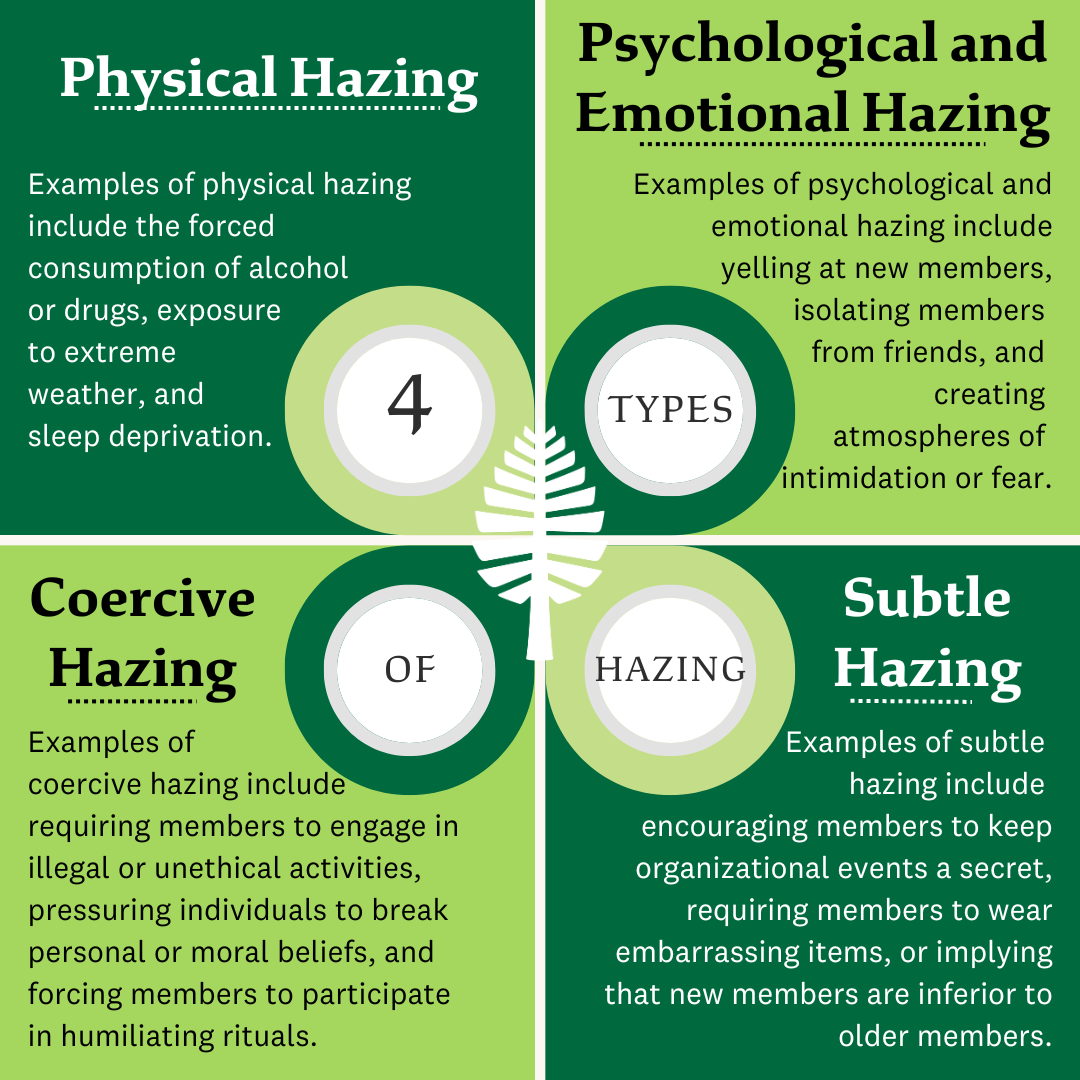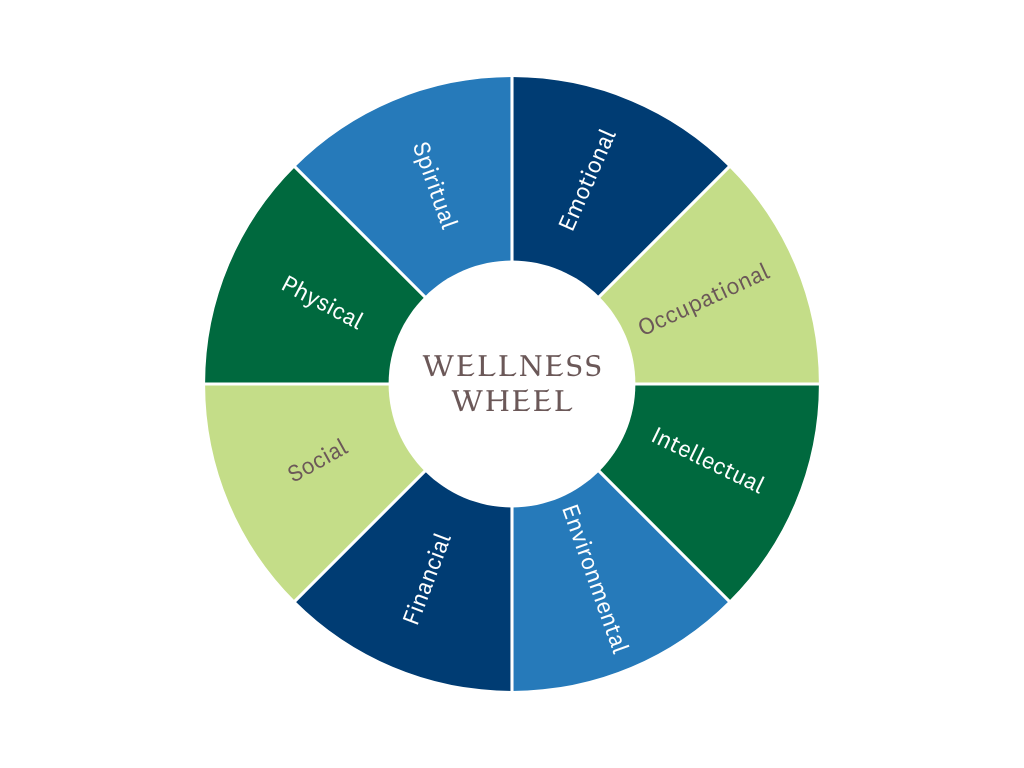Hazing

Hazing Prevention & Awareness at Dartmouth
About Hazing
The Stop Campus Hazing Act (SCHA) defines hazing as:
“Any intentional, knowing, or reckless act committed by a person (whether individually or in concert with other persons) against another person or persons regardless of the willingness of such other person or persons to participate, that: (I) is committed in the course of an initiation into, affiliation with, or the maintenance of membership in, a student organization and (II) causes or creates a risk, above the reasonable risk encountered in the course of participation in the institution of higher education or the organization (such as the physical preparation necessary for participation in an athletic team), of physical or psychological injury...”
For the full definition and Act, please review the Stop Campus Hazing Act at Congress.gov.
Online Hazing Reporting Form
The Types of Hazing
Hazing negatively impacts the Dartmouth community and can physically, emotionally, or psychologically harm those involved. The most common types of hazing can be broken down into four categories:
Physical hazing includes incidents such as:
- Forced consumption of alcohol, drugs, food, liquid, or other substances;
- Placing harmful substances on someone’s body;
- Beatings, whippings, paddling, branding, electric shocks, or physical punishments;
- Exposure to extreme weather;
- Confinement in small spaces;
- Coerced or forced performance of sexual acts;
- Sleep deprivation; and
- Extreme physical exercise beyond normal training.
Psychological and emotional hazing includes incidents such as:
- Yelling, screaming, or cursing at new members;
- Humiliation through embarrassing tasks or public ridicule;
- Intentionally creating an atmosphere of intimidation or fear;
- Isolation from friends; and
- Exclusion from normal activities.
Coercive hazing includes incidents such as:
- Requiring members to engage in illegal or unethical activities, including theft and vandalism;
- Pressuring individuals to break personal, moral, or religious beliefs;
- Forced participation in degrading or humiliating rituals; and
- Threatening expulsion from the group for noncompliance.
While subtle hazing does not always violate hazing laws or policies, it is still harmful. Subtle hazing includes incidents such as:
- Assigning meaningless, unnecessary tasks to new members;
- Encouraging secrecy about organizational activities;
- Requiring members to wear embarrassing or identifying items; and
- Implying that new members are inferior to older members.
The examples above are not comprehensive, but provide insights into hazing behaviors that can occur under each category.

The Harmful Effects of Hazing
While some types of hazing might seem less harmful than others, all forms of hazing undermine Dartmouth’s mission of maintaining an inclusive, safe, and respectful campus environment. The harmful effects of hazing can be long-lasting, unanticipated, hidden, and different for each individual and can include:
- Physical consequences, such as injury, illness, substance abuse, and death;
- Mental health consequences, such as anxiety, depression, PTSD, and suicidal thoughts;
- Academic and social consequences, such as lower grades, withdrawal from campus life, and damaged relationships; and
- Legal and institutional consequences, such as criminal charges, suspension, and loss of organizational recognition.
Using the wellness wheel, we can further explore the negative effects of hazing. Hazing can impact all aspects of our lives, from social and occupational to intellectual and spiritual.

Hazing FAQs